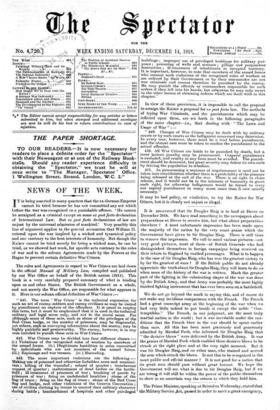In view of these provisions, it is impossible to call
the proposal to arraign the Kaiser a proposal for ex post facto law. The methods of trying War Criminals, and the punishments which may be inflicted upon them, are set forth in the following paragraphs of the same chapter—i.e., that dealing with "The Laws and Usage of War" :— "440. Charges of War Crimes may be dealt with by military courts or by such courts as the belligerent concerned may determine. In every case, however, there must be a trial before punishment, and the utmost care must be taken to confine the punishment to the actual offender.
450. All War Crimes are liable to be punished by death, but a more lenient penalty may be pronounced. Corporal punishment is excluded, and cruelty in any form must be avoided. The punish- ment should be deterrent, but great severity may defeat its own ends by driving the population to rebellion.
451. In pronouncing a sentence of imprisonment it need not be taken into consideration whether there is a probability of the prisoner being released at the end of the war. There is no right to claim release, and it would not be in the interests of humanity to grant such right, for otherwise belligerents would be forced to carry Out capital punishment in many more cases than is now usually necessary."
It may bo bad policy, or vindictive, to try the Kaiser for War Crimes, but it is clearly not unjust or illegal.






































